Posted on 12/20/2024
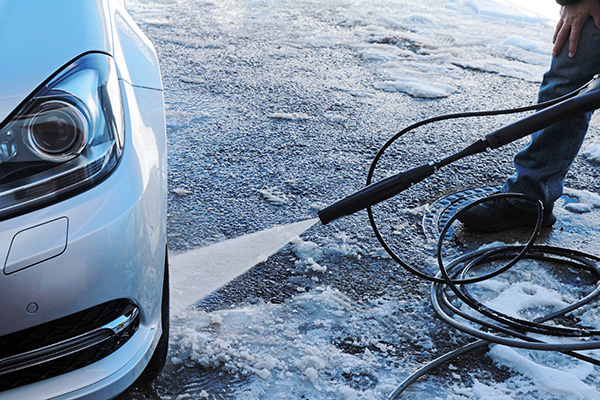
Winter can be brutal on your car. Between icy roads, road salt, and freezing temperatures, your vehicle faces challenges that go beyond just keeping it running. One of the most overlooked aspects of winter car care is keeping it clean. But how often should you wash your car during the cold months? Is it really necessary when it feels like it’s just going to get dirty again? Why Washing Your Car in the Winter Winter roads are a cocktail of elements designed to keep you safe but can wreak havoc on your car. Salt, sand, and chemical de-icers are essential for preventing accidents but are also corrosive. Left unchecked, these substances can damage your car’s paint, corrode its undercarriage, and even compromise critical components like brake lines. Washing your car frequently helps prevent these problems, extending the life of your vehicle and keeping ... read more
Posted on 11/29/2024
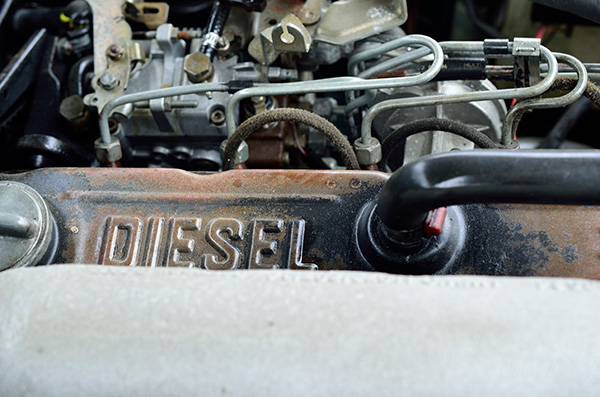
Diesel engines are known for their robustness, efficiency, and power—but what really makes them run? Whether you're behind the wheel of a diesel-powered car, truck, or heavy-duty machine, these engines run on principles and mechanics that set them apart from their gasoline counterparts. Unlike gasoline engines, diesel engines ignite fuel differently and are designed to handle a high level of stress, making them a staple in both commercial and heavy-duty applications. We’ll share the key elements that keep diesel engines running and why they’re a powerhouse in the world of internal combustion engines. How Diesel Engines Differ from Gasoline Engines What makes diesel engines stand out? It’s all about the combustion process. Diesel engines rely on compression ignition rather than the spark ignition found in gasoline engines. In simple terms, this means that diesel engines compress air to such high pressure and temperature that fuel ignites sp ... read more
Posted on 10/31/2024

Ever found yourself driving down the road, only to have your windows fog up? Not only does it obstruct your view, but it can also be dangerous if you don’t clear it quickly. Fogged-up windows are a common issue, especially during colder months or humid conditions. So, what causes this to happen, and more importantly, how can you prevent it? What Causes Car Windows to Fog Up Fogged-up windows occur when there’s a difference in temperature between the inside and outside of your car. Warm, moist air inside the car comes into contact with the cold glass, leading to condensation, which forms a foggy layer on the windows. Humidity, wet clothing, or even breathing in a closed environment can increase moisture inside your vehicle, worsening the problem. Turn On Your Defroster for Immediate Relief One of the quickest and most efficient ways to clear foggy windows is by using your car’s defroster. The defroster works by blowing warm, dry ai ... read more
Posted on 9/27/2024
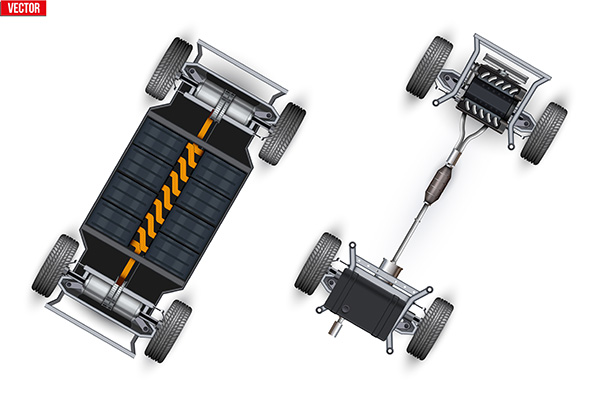
Electric vehicles (EVs) are becoming more popular every day, driven by environmental consciousness, technological advancements, and rising fuel costs. But as these sleek, silent machines take over the streets, many car owners ask if maintaining an electric vehicle differs from traditional gas-powered cars. The answer is yes—and no. While some unique aspects of EV maintenance exist, some general practices remain the same. Let's break it down. Fewer Moving Parts, Less Frequent Maintenance One of the most significant differences between electric vehicles and their gasoline counterparts is the number of moving parts. Traditional internal combustion engine cars have complex engines filled with parts that require regular maintenance—everything from oil changes to timing belts and spark plugs. On the other hand, electric vehicles are much simpler under the hood. EVs don't have engine oil, which eliminates the need for regular oil changes. There are no s ... read more
Posted on 8/29/2024
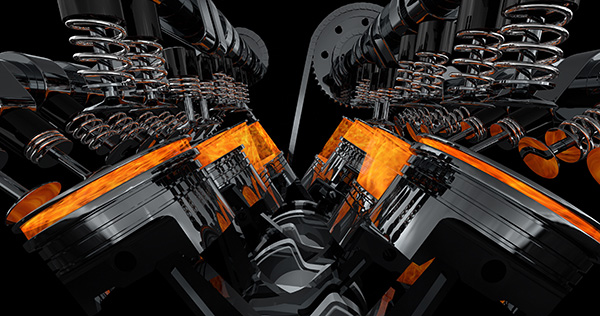
Maintaining your car's fuel injectors might not be the first thing on your mind when you think about vehicle upkeep, but it plays a critical role in the overall health and performance of your car. Many drivers overlook this essential component, leading to decreased efficiency, performance issues, and even costly repairs. We'll explain the benefits of maintaining your car's fuel injectors and why it's something you should prioritize. Enhanced Fuel Efficiency Improved fuel efficiency is one of the most immediate benefits of maintaining your car's fuel injectors. Fuel injectors play a pivotal role in ensuring the right amount of fuel is delivered to the engine. When injectors are clean and functioning correctly, they spray fuel in a fine mist, allowing for more efficient combustion. Dirty or clogged injectors, on the other hand, can cause uneven fuel distribution, leading to wasted fuel and reduced mileage. Regular maintenance helps keep your injecto ... read more
Posted on 7/26/2024
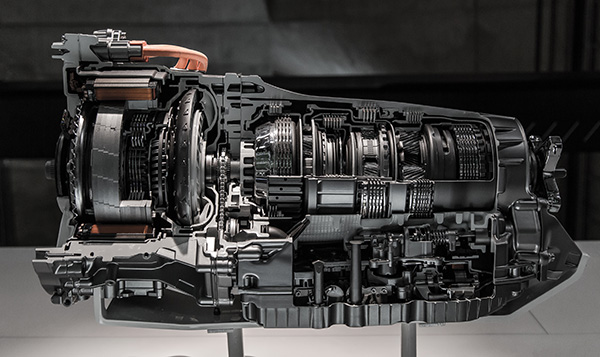
Experiencing engine shakes during gear changes can be disconcerting, leaving you worried about potential underlying issues. If you've noticed your car's engine trembling or shaking when shifting gears, it's important to address the problem promptly. This phenomenon can be a sign of several mechanical issues, ranging from minor to serious. Let's explore the common causes of engine shaking during gear changes and what you can do about it. 1. Worn-Out Motor Mounts Motor mounts play a crucial role in stabilizing your engine and absorbing vibrations. When they wear out, they lose their ability to perform these functions effectively. Why It Happens Over time, the rubber in motor mounts deteriorates, and the mounts can no longer hold the engine securely in place. This can lead to increased engine movement and vibrations during gear changes. What You Should Do Have your motor mounts inspected by a professional. If they are ... read more
Posted on 6/26/2024
Celebrating Three Years of Complete Automotive South: A Testament to Community and Values As we look forward to September, we at Complete Automotive are excited to celebrate a significant milestone: Complete Automotive South’s third anniversary serving Springfield Mo. This occasion marks not just the three years of service but a reaffirmation of our commitment to serving our community with integrity, honesty, and compassion. Our core values “honesty, integrity, growth, gratitude, and compassion” have been the cornerstone of our operations since inception. These values are not mere words but principles we embody every day, guiding every decision and interaction we make. They define who we are and how we operate. Thus, ensuring that every customer who walks through our doors receives not only expert automotive services but also a genuine commitment to their satisfaction and meeting their expectations. At Complete Automotive South, our operating principles are ... read more
Posted on 5/28/2024
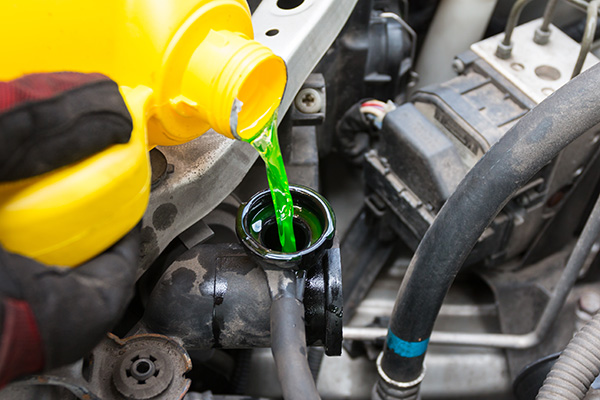
In the realm of automotive care, few tasks are as essential as monitoring your engine's coolant level. At the heart of this balance lies coolant—a silent guardian tasked with regulating temperatures and preserving engine health. As your vehicle traverses roads and miles, this critical fluid diminishes, prompting the need for replenishment. We will explain how to top off your coolant in 7 easy steps Step 1: Prioritize Preparation Park your vehicle on a level surface and allow the engine to cool completely before replenishing the coolant. This guarantees a stable, cool environment for a safe refill and minimizes the risk of coolant splatter. Step 2: Locate the Coolant Reservoir Identify the coolant reservoir, usually a translucent plastic container situated near the radiator. Verify the coolant level indicators on the reservoir's side ... read more
Posted on 4/26/2024
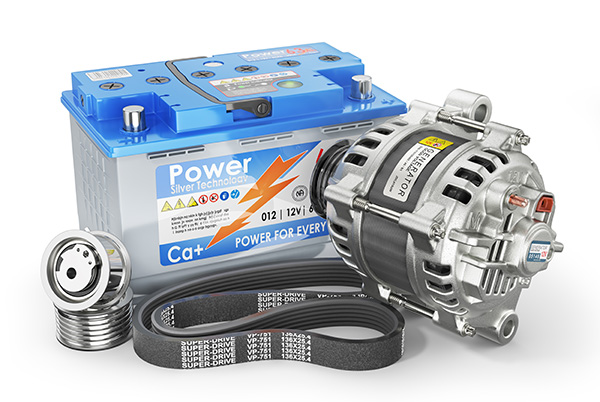
While the engine might start without any trouble, the presence of the battery light signals a potential issue with your vehicle's electrical system. We'll explain why the battery light might come on, what it means for your car's health, and why checking your alternator is required. What Is The Alternator Your car's alternator is the primary power source for its electrical components, including the battery. When the engine is running, the alternator generates electricity to power the vehicle's various systems and recharge the battery. It converts mechanical energy from the engine into electrical energy, keeping everything running smoothly. Without a functioning alternator, your car's battery will eventually lose power, leading to a host of electrical issues. Common Signs of Alternator Trouble While a lit battery light is a clear indicator of potential alternator problems, there are other signs to watch for. Keep an eye ... read more
Posted on 3/27/2024
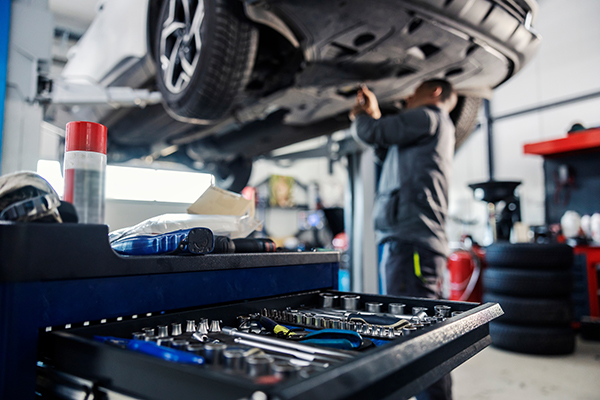
Transmission fluid plays a crucial role in the operation of your vehicle's transmission system, acting as both a lubricant and coolant to ensure smooth gear shifts and prevent overheating. However, the presence of transmission fluid leaking from your vehicle can be a cause for concern, indicating potential issues that require attention. Transmission fluid is a specialized lubricant designed to withstand high temperatures and pressures within the transmission system. It serves multiple purposes, including lubricating gears and bearings, cooling transmission components, and facilitating smooth gear shifts. Detecting a Transmission Fluid Leak Transmission fluid is typically red or pink in color, allowing for easy identification. You may notice puddles of fluid forming ... read more